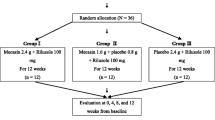Abstract
Riluzole, after two significant trials, was introduced as the first standard treatment of amyotrophic lateral clerosis (ALS) in the early 95'. After 5 years what has changed in the field of ALS?
In the field of basic science, riluzole as an active drug has largely contributed to stimulate the research of the possible role of glutamate in the genesis of ALS. However, the apparent simplicity of the relation between the drug and its mechanisms has to modulated in the light of the negativity of other trials (gabapentin) and the display of other mechanisms of the disease and of the compound. Possible relation with other putative mechanisms of ALS, as oxydative stress or growth factors, could be (and probably are) also involved.
In the field of its activity, riluzole has an impact on the survival rate which has been largely debated. Comparison with historical databases are supporting the results of the two initial trials. Other information have been published supporting the probable activity of the drug on the muscle strength decline, a controversial matter. They strengthen the initial data and give additional reasons to use riluzole as a standard treatment of patients.
In the field of the daily care, riluzole provided a real and unique hope for ALS sufferers. Even if its activity is not as complete as patients would have expected, it provides a hope for slowing down the rate of evolution and abolishes the myth of “no hope, no cure” which was the leitmotiv of patients care until recently. We have to better define the mode of administration with regard to the clinical status of the patients (respiratory disorders, fatigue, stiffness).
In the field of care givers, riluzole was one major factor which provided the basis for national and international collaborations either for therapeutic trials or for standard of care. It made possible large collaborative programs in and among many countries.
We do hope that this impulse will continue and be stimulated by additional results both in the field of basic science and clinical research.
Similar content being viewed by others
Author information
Authors and Affiliations
Rights and permissions
About this article
Cite this article
Meininger, V., Lacomblez, L. & Salachas, F. What has changed with riluzole?. J Neurol 247 (Suppl 6), VI19–VI22 (2000). https://doi.org/10.1007/PL00007784
Issue Date:
DOI: https://doi.org/10.1007/PL00007784




